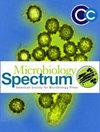Evaluating the health risk of probiotic supplements from the perspective of antimicrobial resistance
Abstract
Antimicrobial resistance remains a public health threat. Probiotics harboring antimicrobial resistant genes (ARGs) have, in recent years, been considered a potential health risk. Studies conducted on probiotics from increasingly popular health supplements have raised the possibility of transmitting ARGs to commensals in the human gut, concomitantly establishing a reservoir of ARGs and risking acquisition by opportunistic pathogens. Building on our previous study that reported multiple antibiotic resistance in probiotics of health supplements, in this research, we have attempted to detect their ARGs that may account for resistant phenotypes. ARGs responsible for tetracycline, macrolide, aminoglycoside, and glycopeptide resistance were prevalent in probiotics. Through laboratory adaptive evolution studies, we also show that streptomycin-adapted probiotics gained resistance to erythromycin, tetracycline, and doxycycline more effectively than non-adapted ones. When co-incubated with Enterococcus faecalis, Escherichia coli, or Staphylococcus aureus on Caco-2 and/or HCT-116 cells, streptomycin resistance was transferred from the adapted probiotics to generate transconjugants at frequencies comparable to or higher than that of other studies conducted through filter mating. Consistently, ARGs conferring resistance to streptomycin (aadA) and erythromycin [erm(B)-1] were detected in E. coli and S. aureus transconjugants, respectively, after co-incubation with streptomycin-adapted probiotics on Caco-2 cells. aadA and erm(B)-1 were both detected in E. faecalis transconjugant after the same co-incubation on HCT-116 cells. Our data and future comparative genomics and metagenomics studies conducted on animal models and in healthy, immunocompromised, and/or antibiotic-treated human cohorts will contribute to a more comprehensive understanding of probiotic consumption, application, and safety.
Importance: Probiotics are becoming increasingly popular, with promising applications in food and medicine, but the risk of transferring ARGs to disease-causing bacteria has raised concerns. Our study detected ARGs in probiotics of health supplements conferring resistance to tetracycline, macrolide, aminoglycoside, and glycopeptide drugs. Streptomycin-adapted probiotics also gained resistance to other antibiotics more effectively than non-adapted ones. Importantly, we showed that streptomycin resistance could be transferred to other bacteria after co-incubation with probiotics on human intestinal cells. ARGs responsible for erythromycin and streptomycin resistance, which were initially absent in the recipient bacteria, were also detected in the transconjugants. Our data build the foundation for future studies that will be conducted on animal models and in humans and leveraging advanced metagenomics approaches to clarify the long-term health risk of probiotic consumption.





